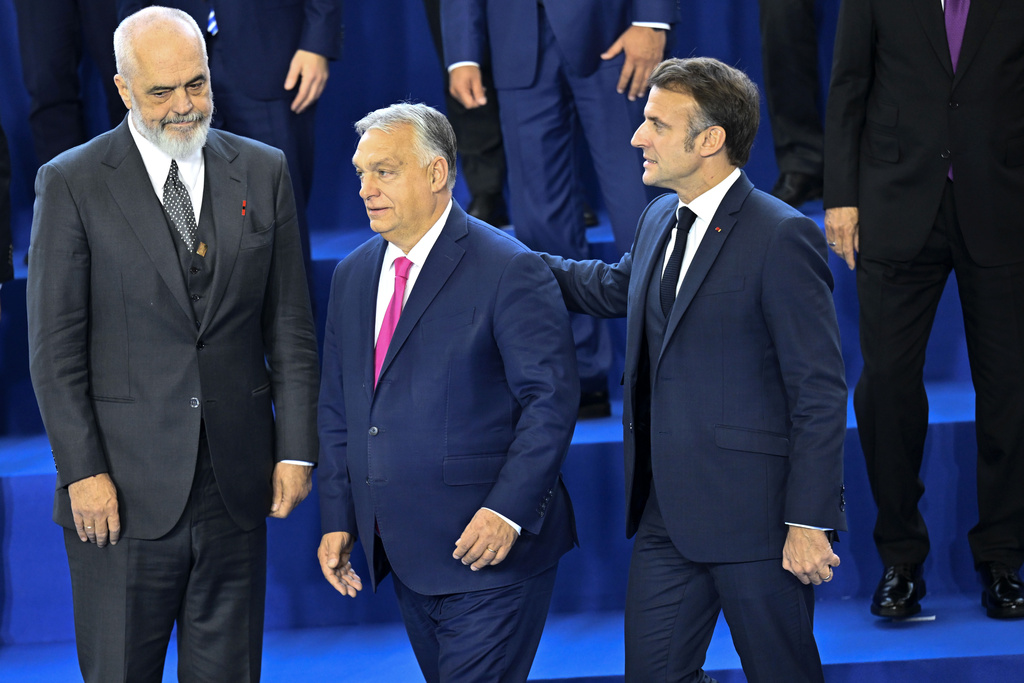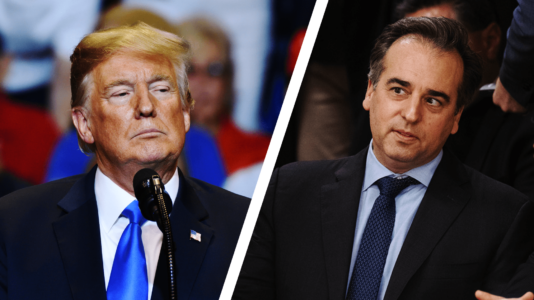Hungarian Prime Minister Viktor Orbán and Albanian Prime Minister Edi Rama held a press conference at the summit of the European Political Community (EPC) summit yesterday.
Calling the summit the biggest diplomatic event in the history of Hungary, Orbán noted it took place in a difficult, complicated and dangerous situation. “The war started by Russia against Ukraine has been going on for three years, the Middle East is in flames, migration pressure is increasing, and the world is also experiencing an unprecedented economic blockade,” he said.
The Hungarian PM added: “There’s no time to waste. History has apparently sped up – a chapter has been closed with the American elections and the world will change faster than we thought.”
According to the prime minister, there was a consensus “that Europe should assume greater responsibility for its own peace and security in the future; to put it even more bluntly, we cannot expect the Americans to protect us alone.”
He added that several working groups have been formed, some of which will deal with the economy and others with migration.
Regarding migration, Orbán announced, “Everyone is unhappy with the current situation and everyone wants change,” adding that so-called “judicial activism” holds back effective action, and Europe must rebel against it.
In response to a journalist’s question, Orbán said that Hungary’s first act in response to the migration crisis in 2015 was rebellion; that is when it built a fence. The country also made sure that no one is allowed in until their asylum application has been judged.
“Until this rebellion spreads across Europe, there will always be a need for summits where legislation is debated,” he said.
Regarding the EU’s massive fine on Hungary due to their migration law, the prime minister said, “If I amend the legislation, it will be unconstitutional, and the constitution cannot be amended in the area of migration. International courts tie the hands of governments. If judicial activism does not allow the will of the people to prevail, then something must be done.”
“I am the only prime minister who survived the migration crisis. Because I was always on the side of the people. Anyone who does not follow the Hungarian model will fail,” the Hungarian prime minister said.
Regarding the war in Ukraine, he said, “The camp of peace supporters grew enormously with the American election, which is a new situation, and Europe must react to it.”
However, Europeans must clarify what victory would look like. “We have to ask what we have achieved and what we want. Now we look like we’re lost in the woods. It’s not an intellectual game, it’s a bloody one,” Orbán said, adding that this is not about the Russian position, but about the position of NATO and the Western community.
“If we talk too much about the long-term peace after the war, the chances of a ceasefire decrease,” he said in response to another question. “Currently, there is no communication between the parties at all. I would like a ceasefire,” he added, saying that if this is achieved, then at least the communication channels between the warring parties can be reopened.
Orbán also asked how Europe can participate in financing the war if America does not participate, saying, “The €50 billion package is still on the table (…) but €50 billion is not enough, and new requests may come. What nation can afford to invest in that?”
According to him, it is clear that the developments in European politics show that people want to finance the war less and less and that sanctions were not at all as effective as Brussels had expected.
Orbán also emphasized the importance of Europeans being involved in any peace talks, as their outcome “will determine not only the future of Ukraine but also the security of Europe,” adding that Europe must not leave the future of its security architecture in the hands of the Russians or the Americans.
Speaking on American-Hungarian relations, Orbán admitted that “they have deteriorated quite a lot over the last four years, so the mistakes must be corrected.” As to addressing various Hungarian grievances, such as the issue of double taxation, Orbán said, “We are on the list” and that their chances are good, as “we are in a close alliance with Trump.”
Regarding trade, the Hungarian prime minister noted that “Trump is a very tough negotiating partner on trade issues, which is why it is important to reach good agreements. You have to stay very active for that.”
For his part, Albanian Prime Minister Edi Rama thanked Orbán, jokingly calling him the “black sheep” of Europe. Rama made clear that Vladimir Putin has awakened Europe, imposing difficult challenges but also shaking things up for (hopefully) the better. Rama is known for making anti-Trump statements in the past, although he has congratulated the president-elect on his election victory and said he looks forward to working with him. Not yet a member of the EU, Albania has said it will be ready for accession talks by 2030.
The next EPC summit will be held in the Albanian capital of Tirana in 2025.






